After 14 years, this is what a Conservative government has done for women’s rights in the UK
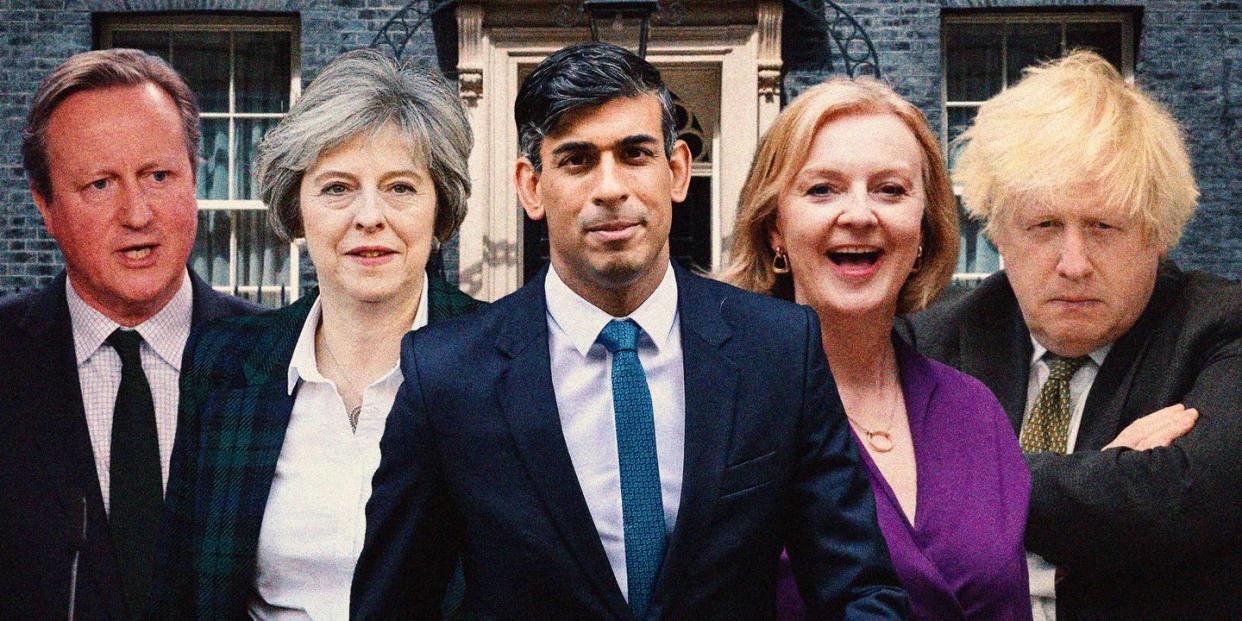
After months of speculation and will-he-won’t-he moments, Rishi Sunak finally did what a lot of us had been waiting for last week – he called a General Election (or genny lec, if you’re up to date).
On 4th July, us Brits will head to the polls to vote for our next Prime Minister. In the blue corner is the incumbent ‘dishy’ Rishi Sunak, whom half of UK residents believe has been ‘a poor or terrible PM’. In the red corner is Keir ‘Mark Darcy’ Starmer, who is over 20 points ahead in the opinion polls and expected to lead the Labour party to victory, ending 14 years of Conservative rule in the UK.
Yep, the Tories have been in power since David Cameron ‘won’ (well, with the help the coalition with the Liberal Democrats) in 2010, and in that time, we’ve been through seismic social and technological change: social media platforms have tripled their user base in that time, Brexit has seen us (somewhat) sever ties with the EU, and a global pandemic overhauled how we approached our day-to-day lives.
In those troubling and trying times, we’d love to say the government remained strong and stable (gosh imagine what ‘chaos with Ed Miliband’ would have looked like), but the Tories have swapped leaders and rebuilt Cabinets fairly frequently. After Cameron stepped down in 2016 (he returned as a Cabinet minister last year), Theresa May held the fort for three years, only to be ousted by Boris Johnson over the ongoing Brexit debate. Partygate, and the overall poor handling of coronavirus, led to his downfall in 2022. There, we had a fun interlude with Liz Truss, who, was forced out of No. 10 after just 45 days when her ‘mini budget’ crashed the economy. Since then, we’ve been overseen by ‘Prime Minster through clearing’ Sunak.
The Conservative Party has always claimed they’re the party with women’s rights at the forefront, and boast having three female prime ministers (Labour has had zero, btw). Sunak (who will tell anyone unprompted that he’s ‘a father of daughters’) even claims he also has a so-called ‘manifesto for women’ which looked to tackle the numerous ongoing issues faced by 51% of the population. But with nearly a decade and a half in power, what have the Tories really done for women in that time? Cosmopolitan UK looks back at the Conservatives’ record, what they’ve backed – and what they’ve shot down.

Marriage (Same Sex Couples) Act 2013
In 2013, then-PM David Cameron faced controversy and plenty of opposition from his own party when he fought to make gay marriage legal in the United Kingdom. Speaking in his 2019 autobiography, For the Record, Cameron details how one Conservative party member “tore up their membership card” in front of him in protest.
MPs voted in favour of the bill, by 400 to 175 – however, 135 Tory MPs voted against the bill.
The bill, which saw first same sex marriages in England and Wales in 2014, meant:
- Same sex couples could now marry in civil ceremonies
- Civil partners can convert their partnership to a marriage, if they wish
- Individuals can change their legal gender without having to end their marriage
“It was an issue that I would worry and even wobble over,” Cameron added. “But I have absolutely no regrets, and it is one of the things of which I’m proudest.”
Revealing the gender pay gap
Another rare Cameron win, the then-Conservative Party leader launched a consultation in 2015 into gender pay transparency. Large companies are now forced to disclose whether they are paying men more than women.
In a speech, Cameron said: “Paying men and women different amounts for doing the same job isn't entirely solved, but it's nearly solved. The difference between pay for men and women doing different jobs is much more difficult to tackle, but we can do it with help from businesses.”
At the time, the gender pay gap in the UK stood at 19.1% for all full and part-time workers, meaning for every £1 a man was paid, a woman earned just 80p.
Now, any employer with 250 or more employees on a specific date each year (the 'snapshot date') must report their gender pay gap data
The gender pay gap still persists in Britain today, but it has narrowed, with women earning 91p on average for every £1 a man earns. Greater levels of transparency have helped women feel validated, though experts predict it could still take 29 years to close the UK’s gap at the current rate of progress, so there’s still much work to be done.
2015 Modern Slavery Act
This important bill (spearheaded by then-Home Secretary Theresa May) was given royal assent in May 2015, and aimed to tackle the problem of modern slavery in the UK, give law enforcers stronger powers and perpetrators harsher punishments.
The act promises to:
- Ensure that perpetrators receive suitably severe punishments for modern slavery crimes (including life sentences)
- Introduce a defence for victims of slavery and trafficking
- Create an independent anti-slavery commissioner
- Enable law enforcement to stop boats where slaves are suspected of being held or trafficked
It is believed 71% of victims of modern slavery across the world – amounting to 30 million people – are thought to be women and girls.
The act was widely praised, with the UK thought to be pioneers in ensuring businesses were transparent about potential slavery links in supply chains, with thousands of large businesses then going on to take action.
However, Sunak’s Rwanda Bill was widely criticised by anti-slavery groups after he rejected calls to exempt victims of modern slavery from the scheme, meaning existing protections for modern slavery risked being undermined.
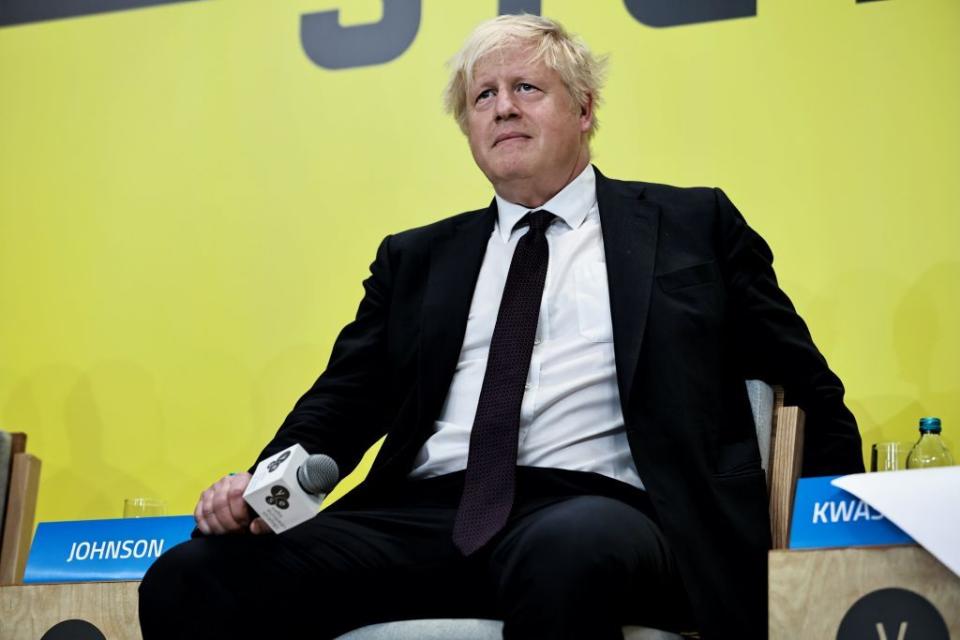
Shared Parental Leave
As part of the Conservative-Liberal Democrat coalition, Shared Parental Leave was introduced in the UK in April 2015. The new rules meant that, for the first time, eligible (big caveat) parents could choose whether they wanted to share the mother’s maternity leave.
The new rules meant that, while new mothers will still take at least two weeks of maternity leave immediately after birth, working couples have the opportunity to share up to 50 weeks of leave and up to 37 weeks of pay, allowing fathers better opportunity to bond with their child.
It was, in theory, a big move from statutory paternity pay, which pays either 90% of a man’s average weekly salary or £184.03 (whichever is lower). However, very few men have taken up the scheme, due to limitations on eligibility (contract and agency workers or those who are self-employed are not eligible) and the stigma in many workplaces discouraging men from taking it.
Statutory paternity leave in the UK remains at a paltry two weeks (the least generous in Europe).
Domestic Violence Act
Another Theresa May-initiative (though it only became law in 2021, long after she left Number 10) the Domestic Violence Bill aimed to give the justice system more powers to protect survivors of domestic abuse. It also means stricter punishments delivered to perpetrators of domestic violence.
Aided by campaigners and pressure groups such as Women’s Aid, the act resulted in
- A legal definition of domestic abuse which recognises children as victims in their own right
- A Domestic Abuse Commissioner who stands up for survivors and life-saving domestic abuse services
- Councils now need to fund support for survivors in ‘safe accommodation’
- New protections in the family and civil courts for survivors – including a ban on abusers from cross-examining their victims
- New criminal offences – including post-separation coercive control, non-fatal strangulation, threats to disclose private sexual images
- A ban on the ‘rough sex’ defence
- A guarantee that all survivors will be in priority need for housing
- A ban on GPs for charging for medical evidence of domestic abuse, including for legal aid
- A duty on the government to issue a code of practice on how data is shared between the public services survivors report to (such as the police) and immigration enforcement
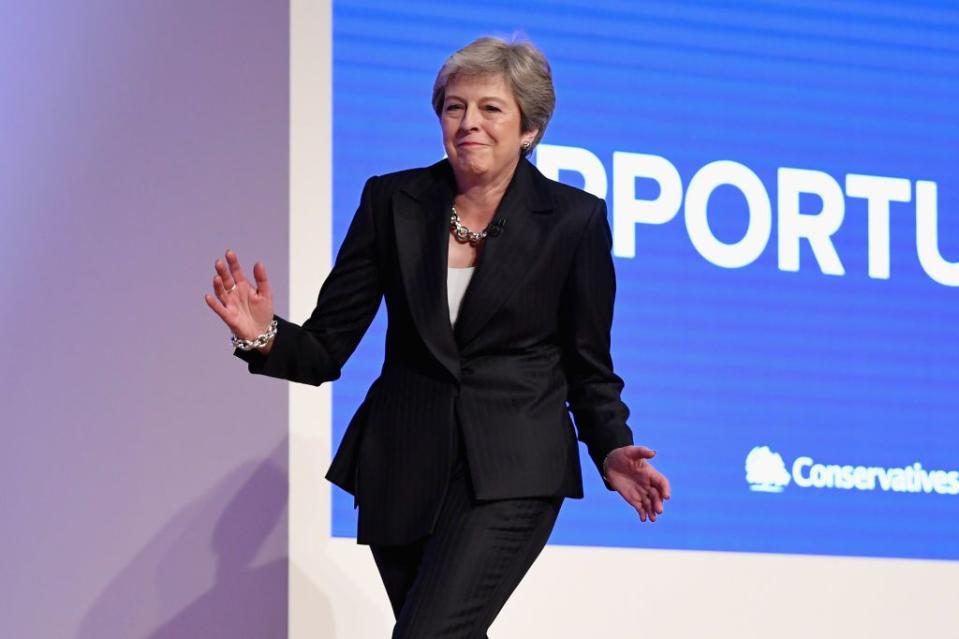
2019 Voyeurism Offenses Act
While we previously had the 2003 Sexual Offences Act in England and Wales, the act did not include upskirting at that time. However, when activist Gina Martin was upskirted while at a music festival, she started a campaign to reopen her case after the police closed it. When Martin’s petition attracted over 58,000 signatures and national attention, it looked as if upskirting was certain to become law in 2018 after Lib Dem MP Wera Hobhouse presented the bill to the House of Commons. Then Prime-Minister Theresa May also backed the bill. But then Conservative MP Christopher Chope intervened.
Upon second reading of the bill, Chope was accused of ‘filibustering’ – the act of deliberately wasting time during a debate to stop a bill from being passed. Chope’s intervention stopped the bill from being passed in 2018, and lead to wide criticism even from within Chope’s own party.
However, the act received royal assent on 12 February 2019, taking effect two months later on 12 April.
Online Safety Act 2023
It was a bill often marred with controversy, but in October last year, the Online Safety Act received royal assent and became law.
The 300-page Act has strengthened pre-existing laws, as well as introduced new ones, to protect against the ongoing epidemic of violence against women and girls.
The legislation has made it easier to convict someone who shares intimate images without consent, whether they're legitimate images or falsified ones (as new laws are also proposed to prevent the non-consensual sharing of pornographic deepfakes).
The Act also places a substantial duty of care on social media platforms to protect users from material that may be considered harmful, even if it is technically legal. Other material covered by the laws includes misogyny and disordered eating.
You can read our explainer on the Online Safety Act here.
Jade’s Law
Part of an amendment to the Victims and Prisoners Bill, Jade’s Law (so-called after Jade Ward, who was murdered by her partner, Russell Marsh) looks to suspended the parental rights of a parent found guilty of murdering their partner.
It will also mean the bereaved will no longer have to go through the current process of applying to restrict parental responsibility through family courts.
You can read our explainer on Jade’s Law here.
Violence against women and girls – what was delivered and what was not?
Following Sarah Everard’s horrific murder in 2021, the British government, at this point being led by Boris Johnson, reopened its public consultation on its violence against women and girls (VAWG) strategy. However, Johnson voted against misogyny being a hate crime, saying in the same year: “If you simply widen the scope of what you ask the police to do, you’ll just increase the problem.” It was at odds with what Conservative peer Lady Newlove, who wanted to amend the bill, said.
“It is perverse that, despite 3 million crimes being committed against women in just three years, our legal and policing systems do not routinely recognise what we all know is blindingly obvious: the deep-rooted hostility towards women that motivates many of these crimes,” she said at the time.
“As a society we have rightly taken steps to acknowledge the severity of racist or homophobic crimes, but have not yet acted on crimes driven by hatred of women.”
Elsewhere, the government has been criticised for rape convictions in England and Wales falling to historic lows. In 2022, it was reported that more than 99% of rapes reported to police do not end in a conviction, with critics saying the heinous crime was effectively ‘legalised’. Some measures have since been implemented to improve the system for rape survivors who choose to bring their case to court.
In 2023, all 43 police forces in England and Wales began implementing a new approach to dealing with rape and other serious sexual offences, ensuring forces conduct thorough investigations which put the focus on the suspect and centre the rights and needs of victims. Known as Operation Soteria, the programme brought together police forces with academics, using evidence and new insight to enable forces and prosecutors to transform their response to how rape and other sexual offences are investigated. It has shown significant promise, with the number of cases being prosecuted by the CPS from the Avon and Somerset area more than tripling since the initiative was introduced.
The government also promised 2,000 extra police investigators will be specially trained in rape and sexual offences. They were deployed in April this year.
Meanwhile, while campaigning to become Conservative leader in 2022, Rishi Sunak vowed to make ‘downblousing’ – taking photos down someone’s shirt without consent – an illegal offence. However, there has been no legislation put forward, and none will be brought before the election as parliament has been dissolved.
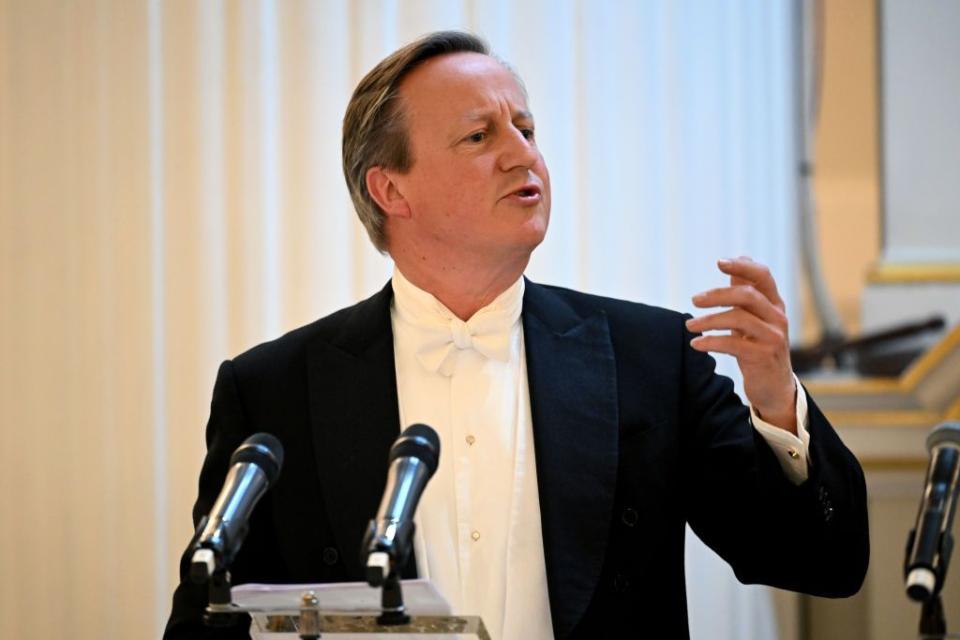
Maternity care under the Conservative party
The Birth Trauma Inquiry – a cross-party initiative that was published earlier this year, heard harrowing evidence from more than 1,300 women about their poor peri- and post-natal experiences in the UK. Some described their experiences of childbirth and the following aftercare as life altering, with some women suffering life-changing injuries to themselves and their babies. The inquiry's authors have damned the UK’s maternity care, finding poor care is “all-too-frequently tolerated as normal”.
While the government was called to implement changes to maternity care as a result of the findings, no changes will be made ahead of the election.
You can read Cosmopolitan UK’s report on maternity care in the UK here.
Childcare under the Conservative party
Childcare costs have risen to astonishing highs, with the UK boasting one of the most expensive nursery systems in the world. Statistics gathered by Coram for their 2024 Childcare Survey has found the average cost of sending a child under two to a nursery full time costs on average a staggering £15,709 per year, leading to Joeli Brearley, CEO and Founder of Pregnant Then Screwed, describing having children in the UK as “financial suicide”. The childcare crisis has gotten so bad, some women are opting to have abortions purely because they cannot afford to send their children to nursery.
Chancellor Jeremy Hunt launched an initiative that promised working parents of two-year-olds in England 15 hours of free care a week.
However, nurseries and other early years providers have warned they will struggle to meet the expected demand for the scheme – and other critics believe the measures go nowhere near far enough to solve the deepening costs of childcare, particularly during a cost-of-living crisis.
Where does the Conservative Party stand on abortion?
While an increasing number of women are being investigated for ‘illegally’ ending a pregnancy, claims abortion provider MSI, some MPs are now looking to amend The Criminal Justice Bill to protect women from being prosecuted for seeking an abortion. Labour MP Diana Johnson, has looked to add an amendment which says no-one faces prosecution or jail for ending their own pregnancy. Stella Creasy, also Labour, wants to make abortion access unconditional up to 24 weeks
Conservative MP Caroline Ansell is separately trying to cut the upper limit for most abortions from 24 to 22 weeks through her own amendment to the Criminal Justice Bill, which would deny abortion access to around 1,500 women a year. Meanwhile, Flick Drummond, also Conservative, has an amendment which would force every single person accessing abortion to attend a clinic in person, regardless of preferences, clinical need, or personal safety. However, not all Conservative MPs support these amendments, and decriminalising abortion does have cross-party support.
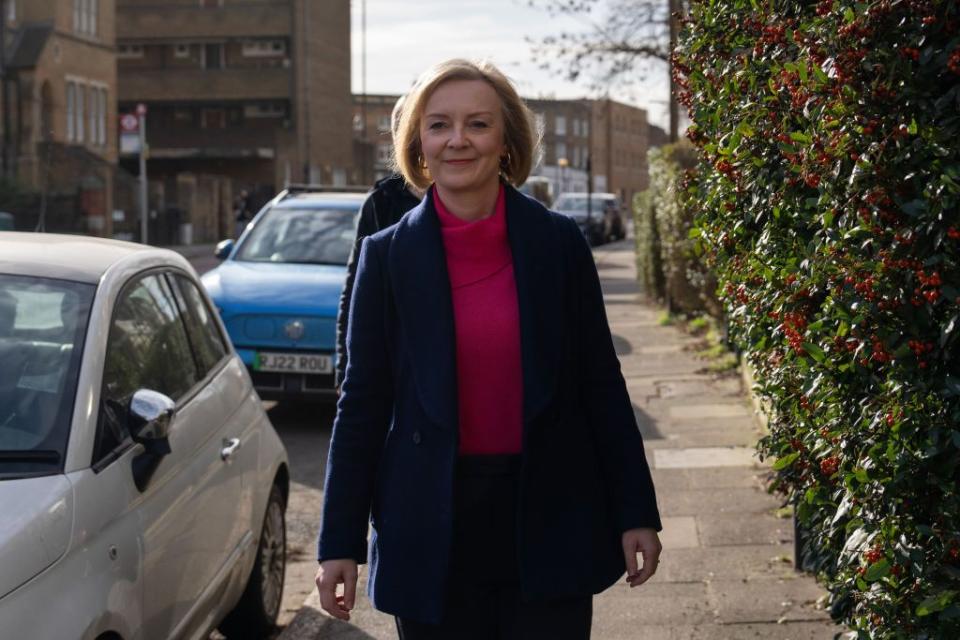
What have the Conservative Party said about trans rights?
The government initially announced plans to ban conversion therapy in the UK in 2021, but in 2022, conversion therapy aimed at trans people was quietly dropped from proposals. After backlash in 2023, Culture Secretary Michelle Donelan then announced trans people were again going to be protected. However, the ban is yet to be put into law, with draft legislation yet to be published.
In 2023, Health Secretary Steve Barclay announced plans to ban trans women being treated on female hospital wards. It’s a plan echoed by Labour, with Shadow Health secretary Wes Streeting reiterating Barclay’s pledge, meaning Labour may also look to ban trans women being treated on female only wards.
Rishi Sunak has been criticised for some of his comments around the trans community– during Prime Minister’s Questions in February this year, he was widely derided by opponents after he criticized Keir Starmer for ‘U-turning’ on his definition of what it was to be a woman. However, he made these comments when Esther Ghey, the mother of murdered transgender teenager Brianna Ghey, was in Parliament. Ghey’s father, Peter Spooner, told Sky News: “As the prime minister for our country to come out with degrading comments like he did, regardless of them being in relation to discussions in Parliament, they are absolutely dehumanising.
"Identities of people should not be used in that manner, and I personally feel shocked by his comments and feel he should apologise for his remarks.”
Sunak did not apologise or retract his comments.
You Might Also Like

 Yahoo News
Yahoo News 
